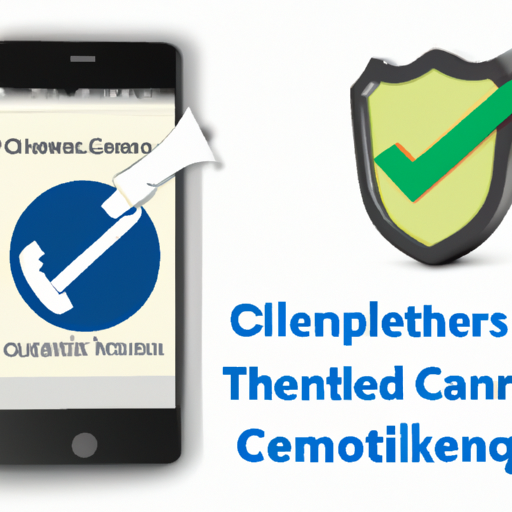In the fast-paced world of telemarketing, it is crucial for businesses to stay informed and updated on the various laws and regulations surrounding this practice. To ensure that your company operates within legal boundaries and avoids potential liabilities, it is essential to understand telemarketing compliance. This article will provide you with an overview of the most frequently asked questions regarding telemarketing compliance, offering clear and concise answers to help you navigate this complex area of law. By the end of this article, you will have a solid understanding of your legal obligations and how to ensure your telemarketing practices are compliant.

What is telemarketing?
Telemarketing is a marketing strategy that involves making phone calls to potential customers in order to promote products or services. It is a direct form of marketing that allows businesses to reach a large number of individuals quickly and efficiently. Telemarketing can be used in various industries and sectors, including retail, insurance, banking, and telecommunications.
However, it is important for businesses to understand the laws and regulations surrounding telemarketing in order to comply with legal requirements and avoid penalties. Failure to comply with these regulations can result in lawsuits and damage to a company’s reputation. Therefore, businesses must be well-informed about telemarketing laws and take the necessary steps to ensure compliance.
Applicable laws and regulations
There are several laws and regulations that govern telemarketing practices. Understanding and complying with these laws is essential for businesses engaged in telemarketing activities. Some of the key laws and regulations include:
Telephone Consumer Protection Act (TCPA)
The TCPA regulates telemarketing calls, faxes, and text messages sent to consumers. It requires businesses to obtain prior express written consent before making telemarketing calls or sending automated text messages or faxes. The TCPA also prohibits certain practices, such as calling phone numbers on the National Do Not Call Registry or using an automatic dialing system to deliver pre-recorded messages without consent.
Telemarketing Sales Rule (TSR)
The TSR is enforced by the Federal Trade Commission (FTC) and provides guidelines for telemarketing practices. It requires telemarketers to disclose certain information to consumers, such as the purpose of the call and the identity of the seller. The TSR also prohibits deceptive and abusive telemarketing practices, including false claims, unauthorized billing, and calling outside of prescribed hours.
Do Not Call regulations
The Do Not Call regulations allow consumers to register their phone numbers on a national registry to opt out of receiving telemarketing calls. Telemarketers are required to maintain and consult the Do Not Call registry to avoid calling individuals who have opted out. Certain exemptions and exceptions apply, which will be discussed in further detail later in this article.
State-specific telemarketing laws
In addition to federal laws and regulations, individual states may have their own telemarketing laws that businesses must comply with. These laws may impose additional requirements and restrictions on telemarketing activities, so it is important for businesses to be aware of and adhere to state-specific regulations.
Do I need permission to make telemarketing calls?
Yes, in most cases, businesses are required to obtain permission before making telemarketing calls. The TCPA mandates that prior express written consent must be obtained from consumers before making telemarketing calls or sending automated text messages or faxes. This means that businesses cannot simply call any phone number and promote their products or services without the recipient’s permission.
What is an established business relationship?
An established business relationship refers to a prior or existing relationship between a business and a consumer based on a voluntary two-way communication. Under the TCPA, businesses may make telemarketing calls to individuals with whom they have an established business relationship, even if the individual’s phone number is on the National Do Not Call Registry.
However, it is important to note that the definition of an established business relationship may vary depending on the specific circumstances and state regulations. Therefore, businesses should consult legal counsel or refer to state-specific laws to ensure compliance.
How to comply with the Do Not Call regulations?
In order to comply with the Do Not Call regulations, businesses are required to maintain and consult the National Do Not Call Registry. This registry contains phone numbers of individuals who have opted out of receiving telemarketing calls. Telemarketers must refrain from calling numbers listed on the registry to avoid violations.
It is recommended that businesses regularly update their call lists and cross-check them against the National Do Not Call Registry. Additionally, businesses should document and record all requests to be added to an internal do not call list and promptly honor those requests. Implementing these measures demonstrates a commitment to compliance and helps to mitigate the risk of non-compliance.
What are the requirements for obtaining consent?
To obtain consent for telemarketing calls, businesses must adhere to specific requirements outlined in the TCPA. These requirements include:
Written consent
The TCPA requires that consent be obtained in writing. This means that businesses must obtain a signed written agreement from the consumer authorizing them to make telemarketing calls. The agreement should clearly state the purpose of the calls, the types of calls that will be made, and provide an opt-out mechanism for consumers.
Recordkeeping
Businesses are required to maintain records of consent for a period of at least four years. These records should include the date and time of consent, the method of consent, and the content of any written agreement. It is important for businesses to keep accurate and up-to-date records to demonstrate compliance with the TCPA.
Revoking consent
Consumers have the right to revoke their consent at any time. The TCPA requires businesses to provide an easy and effective opt-out mechanism for consumers who no longer wish to receive telemarketing calls. Once consent is revoked, businesses must honor the request and remove the consumer’s phone number from their call list.

What are the restrictions on calling cellphones?
There are certain restrictions on calling cellphones for telemarketing purposes. Under the TCPA, businesses are generally prohibited from using an automatic dialing system to call cellphones without obtaining the recipient’s prior express written consent. This means that businesses cannot use automated methods to deliver pre-recorded messages or dial cellphone numbers in a sequential or random manner.
However, there are some exceptions to this rule. For example, businesses may call cellphones with prior express consent, calls made for emergency purposes, calls made for non-commercial purposes, or calls made to retrieve information during market research surveys. It is important for businesses to carefully review these exceptions and ensure compliance with applicable regulations.
How to avoid deceptive telemarketing practices?
To avoid engaging in deceptive telemarketing practices, businesses should adhere to the guidelines set forth by the TSR. This includes:
- Providing accurate and truthful information to consumers about the products or services being offered.
- Disclosing the identity of the seller and the purpose of the call in a clear and conspicuous manner.
- Refraining from making false or misleading claims about the products or services.
- Avoiding unfair and deceptive practices, such as unauthorized billing or misrepresentation of affiliation with a government agency.
By practicing transparency, honesty, and integrity in telemarketing activities, businesses can build trust with consumers and maintain a positive reputation.

When can telemarketing calls be made?
Telemarketing calls can generally be made between the hours of 8:00 a.m. and 9:00 p.m. according to the recipient’s time zone. However, businesses should be mindful of state-specific regulations, as some states may impose stricter restrictions on the timing of telemarketing calls.
FAQs
Can I telemarket to businesses?
Yes, telemarketing to businesses is generally allowed and not subject to the same regulations as telemarketing to individual consumers. However, businesses may still have their own policies regarding unsolicited calls, so it is advisable to check with the specific business before engaging in telemarketing activities.
Can I use an automatic dialing system for telemarketing?
The use of an automatic dialing system for telemarketing calls is subject to certain restrictions. Under the TCPA, businesses are generally required to obtain prior express written consent before using an automatic dialing system to call consumers. However, there are exceptions to this rule, such as calls made for emergency purposes or calls made with prior express consent.
What are the penalties for violating telemarketing regulations?
Violating telemarketing regulations can have serious consequences for businesses. Penalties can range from fines of up to $43,792 per violation, to litigation and damage to a company’s reputation. It is crucial for businesses to be aware of and comply with telemarketing laws to avoid such penalties.
Can I contact customers on the Do Not Call list if I have an established business relationship?
Under the TCPA, businesses may contact customers on the Do Not Call list if they have an established business relationship. However, it is important to note that the definition of an established business relationship may vary, so it is advisable to seek legal counsel or refer to state-specific regulations when determining the applicability of this exception.
Are there any exemptions to telemarketing laws?
Yes, there are certain exemptions to telemarketing laws. For example, calls made for non-commercial purposes, calls made for emergency purposes, and calls made to retrieve information during market research surveys may be exempt from certain telemarketing regulations. However, it is important for businesses to carefully review these exemptions and ensure compliance with applicable laws and regulations.
